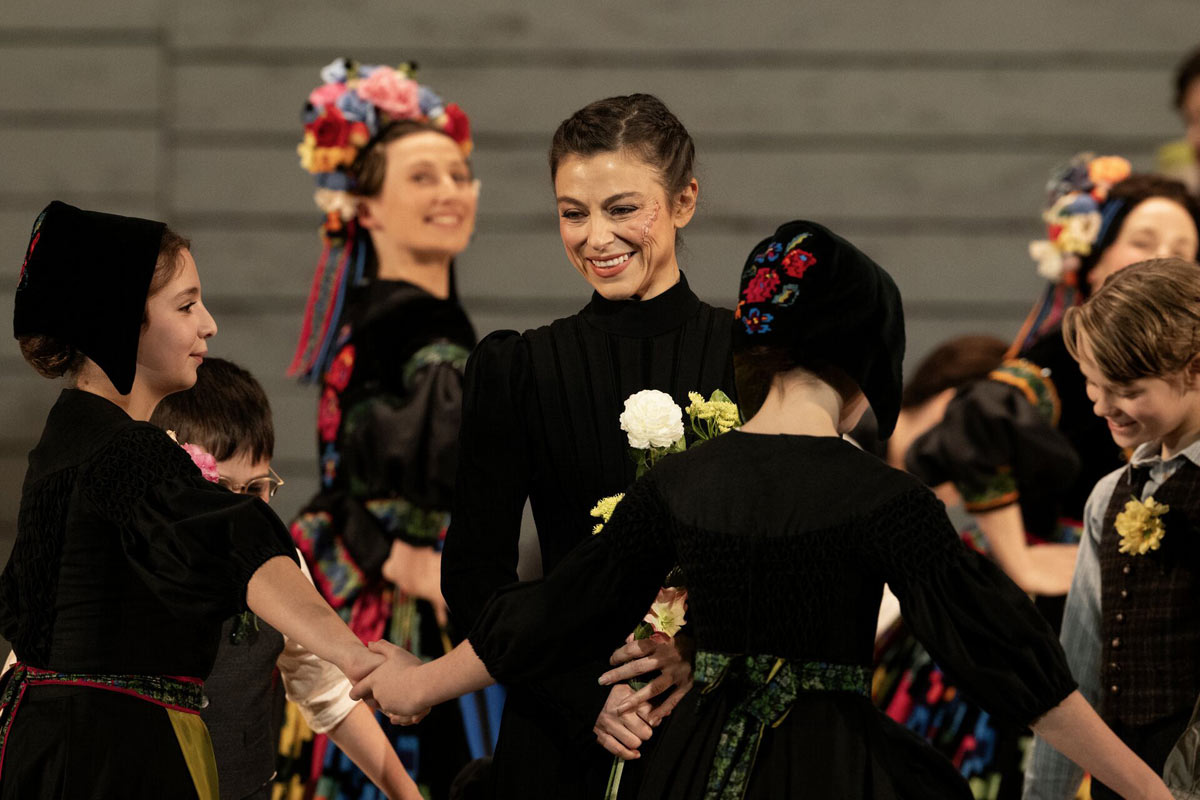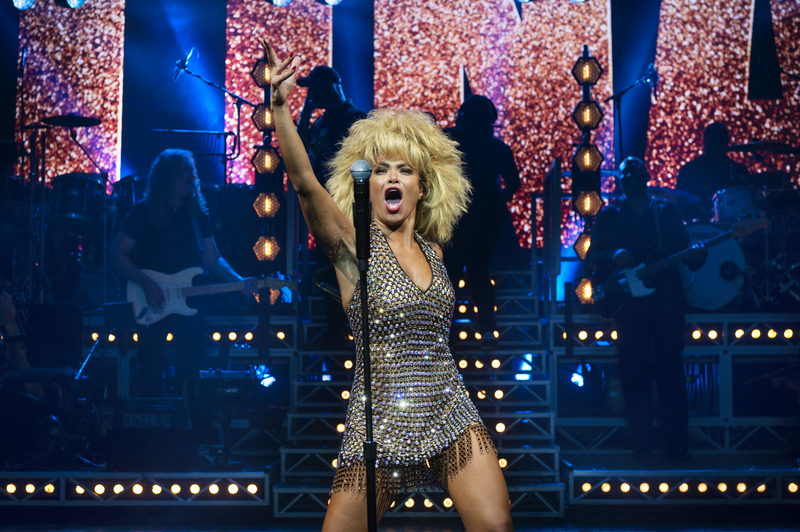American soprano Corinne Winters sings the title role in this revival of Claus Guth’s Olivier Award-winning production which illustrates the power men hold over the lives of women. It also highlights the resilience and capacity for forgiveness which a wronged woman can muster if forced to find a pragmatic way forward when life deals heavy and cruel blows.
In love with the handsome but fickle drunkard Števa (Thomas Atlkins), Jenůfa who secretly carries his child, rejects the advances of Laca (Nicky Spence) who, during an impassioned exchange, scars her face. Jenůfa’s stepmother Kostelnička (Karita Mattila in heart-rending form) pleads and cajoles Števa to do the right thing, but after hiding her step-daughter from public view during the pregnancy, she finally concedes that he will never face up to his responsibilities and curses him and the daughter of the mayor whom he has decided to marry. In desperation at Jenůfa’s dire future, Kostelnička then commits a grave and unthinkable sin in the hopes of restoring her prospects.
Conducted by Jakub Hrůša, on press night the Royal Opera House orchestra gorged itself on the lilting lyricism in the work and due in no small part to the sedate movement of the actors onstage, there were frequent moments when individual instruments were able to steal their moment in the audible spotlight - particularly in the second act.
Whilst the chorus serve as mere set dressing for most of the work, they have some fun moments at the colourful wedding finale, adding a vibrancy to Michael Levine’s otherwise predominantly monochromatic and uber-stylish rendering of the set. Look out for the ominous corvid which climbs atop the upturned bed frames (which form the containment area for Jenůfa’s pregnancy). It sits observing the human goings-on below, almost as if death, fate and ill-fortune had been combined and manifested in the body of a singular, monstrous and wholly unsettling apparition. And it is a terrifically effective device as a result.
Last performance will take place on Saturday 1st February.

 Corinne Winters as Jenůfa in Claus Guth's production of Janáček's Jenůfa, The Royal Opera ©2025 Camilla Greenwell
Corinne Winters as Jenůfa in Claus Guth's production of Janáček's Jenůfa, The Royal Opera ©2025 Camilla Greenwell


